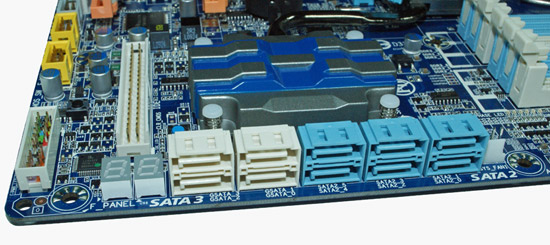May 30, 2012 Re:Marvell 91xx SATA 6Gb/s Controller Update 2012/05/30 15:59:29 Cypherdude Even if you manage to get your RAID'd SSD's working stable, which I doubt, your Marvell controller is probably connected to your mobo via PCIe x1. May 31, 2016 - The Marvell family of PCIe-to-SATA 6Gb/s host controllers offer an ideal cost effective solution. AHCI standard inbox driver (eg. 88SE9220 (PCIe 2.0 x2 to 2 6Gb/s SATA ports, HW RAID); 88SE9230 (PCIe 2.0 x2 to 4 6Gb/s.
I recently added a StarTech 4 port PCIe SATA card to a Linux server. The card is connected via SFF-8087 to a Norco 4224 backplane and 4 new hard drives that I'd like to configure into a new software RAID.
The mobo (Gigabyte GA-990FXA-UD5) already has 8 onboard SATA ports using a similar chipset (2 x Marvell 88SE9172 chips), which are working fine and are currently configured into 2 separate software RAIDs (using mdadm).
Sata 6gb/s Hard Drive
However, the system does not detect the new hard drives, and I also cannot get into the BIOS for the controller card using ctrl+M as suggested by the manual. Has anyone encountered a similar issue, or have any advice for how to troubleshoot? Thanks in advance!
Output from lspci (seems to detect the SATA card, 5th entry from the end):
Output from lsblk (only existing drives are detected):
Pcie X1 Sata Controller
2 Answers
We finally did end up figuring out the problem, it was the wrong type of cable.
We were using a forward breakout cable.
This particular setup requires a Discrete to SFF-8087 (Reverse breakout) cable.
Unraid.net has an explanation of the difference between forward and reverse breakout SFF-8087 cables, even though from the outside they look identical.
That PCI device fifth from the bottom is not the StarTech SATA card, but a Marvell 6Gbps chipset.
I don't see the PCI SATA card listed. It might be defective, and I wouldn't doubt it. I worked in a computer shop back in the day that used those everywhere and they had an out-of-box failure rate of about 10%. That may be sampling bias, but out of several hundred I tend to trust the trend.
Make sure that you don't have settings in your BIOS disabling PCI cards or PCIe to PCI bridges. Some setup programs refer to this as 'legacy free' mode.
